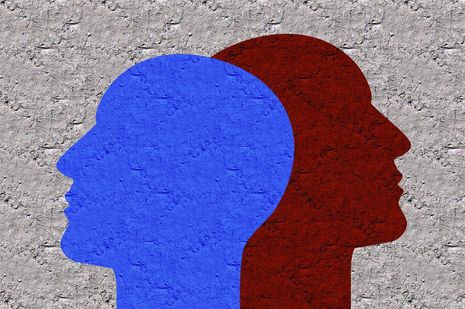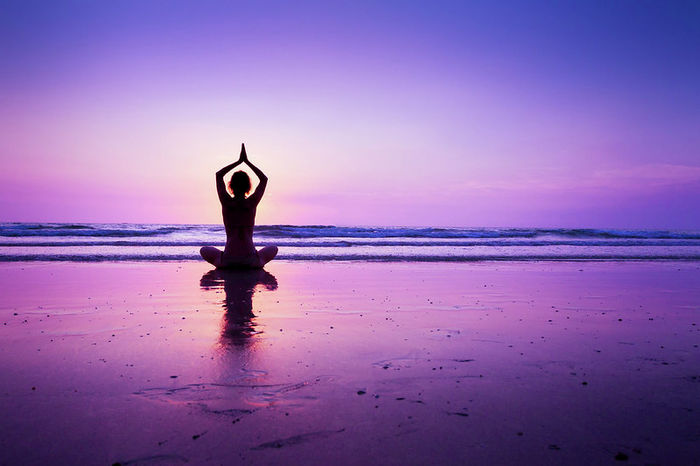I meditated for three months: it changed my life
After having decided to give meditation a go, Joe Bray reports the benefits he’s experienced. From being more present, to having a better control over his thought process, the results are extensive

I get it. Nothing is more frustrating than when, after a year of pandemic living and online studies, your university recommends mindfulness. I was as sceptical as most to begin with. That said, once I’d given it a try, I was intrigued. Whilst meditation is not a cure for mental illness, I can truthfully say the daily practice changed my life.
It is a psychological fact that the more we think a thought, the stronger the neurological pathways become. Every time we think negatively, we practice. Every time we procrastinate, we practice. Repetition is the key to honing a skill: in fact, had I devoted my practice postponing essays to singing instead, I fear Beyoncé would have competition. All is not lost, though. The good news is brain plasticity means we can change. Every time we tell ourselves something kind, we make it easier for our future self to repeat the action.
But how can we change our internal thoughts if we are not aware of them? Pause, right now. Have your last minute of thoughts been positive? Now, try not to think about penguins. No seriously, please think of anything but penguins. It seems trivial, but the inability to control our thinking is an important lesson to learn. We can never stop thoughts, and trying to only makes them worse. We can, however, notice them, treating them separately to our emotional states. It is a teaching of Stoicism that (in theory) one should be able to be a passive observer to thoughts.
“...when walking, I focus on the sounds around me, my feet on the soil, the feeling of wind.”
The person we spend the most time with is ourselves. We know what food we like, our music taste and how much we like houseplants (guilty). But to believe you truly understand every part of your subconscious, or to believe you have a fixed personality, is to neglect to give yourself the attention you deserve. Self-discovery is greater than meditation; to sit and listen, away from distraction, is the first step. We understand the people around us through conversation and observation, but rarely allow this introspection for ourselves. In practising this, I found that introspection helped strengthen my relationships with myself and others.
Sometimes I do three minutes of breathing to feel calm. Other times, I have imagined hugging my childhood self and cried emotions I had no idea I felt. Both practices helped me connect with my feelings and understand myself. Both were equally important. A good analogy is watching lectures: some are more helpful than others. In the same way I do not blame myself for not finding a lecture useful, I now try not to punish myself for not being able to become fully present. The emphasis should be on the celebration that you took time for yourself, an inspiring accomplishment.
“Meditation will not solve your problems, but for me, it was a catalyst for change.”
On the surface, meditation apps present a narrative of disconnection and temporary stillness, and following a ten minute guided meditation often does make me feel calmer. That said, my perception of meditation changed when I developed it as a habit. Increasingly, mindfulness has become a state of mind over a momentary activity. Put into practice, this means that, when walking, I focus on the sounds around me, my feet on the soil, the feeling of wind. Flowers and birds, the position of the sun; I am increasingly better at being present. A simplistic analogy is that anxiety is caused by thinking of the future, depression by living in the past. Thinking about the beauty of a sunset is a temporary escape from both of these. Tara Brach (a well-known meditation teacher), summarised this well: ‘The purpose of mindfulness meditation is to become mindful throughout all parts of life.’
Building a habit is an integral part to fundamentally change our thinking. The app Atom (Android only currently) was really powerful in helping me to build this habit. It taught me important things about integrating a new habit: meditate at the same time every day (even if only for a minute); use a reminder habit (e.g. after making tea); and most importantly celebrating small steps. Meditating at the same time everyday can become as familiar as brushing your teeth in the morning, and is reliant on structure, not determination. Some other ways of building structure can involve different apps and video channels; Medito is an effective, free resource for guided meditations, as is YouTube. It’s worth discovering what works for you.
Numerous studies present the benefits of practicing mindfulness. Academics and teachers can convince you far better than I can. My only goal is to humanise the practice, which should not be intimidating or difficult. I challenge everyone reading this to try it without judgement. Go outside and listen, do a body scan, notice your thoughts. Be kind to yourself and others through loving kindness. Meditation will not solve your problems, but for me, it was a catalyst for change.
 News / Eight Cambridge researchers awarded €17m in ERC research grants27 December 2025
News / Eight Cambridge researchers awarded €17m in ERC research grants27 December 2025 News / Clare Hall spent over £500k opposing busway 24 December 2025
News / Clare Hall spent over £500k opposing busway 24 December 2025 Comment / League tables do more harm than good26 December 2025
Comment / League tables do more harm than good26 December 2025 Comment / The ‘class’ of Cambridge24 December 2025
Comment / The ‘class’ of Cambridge24 December 2025 News / Caius mourns its tree-mendous loss23 December 2025
News / Caius mourns its tree-mendous loss23 December 2025










